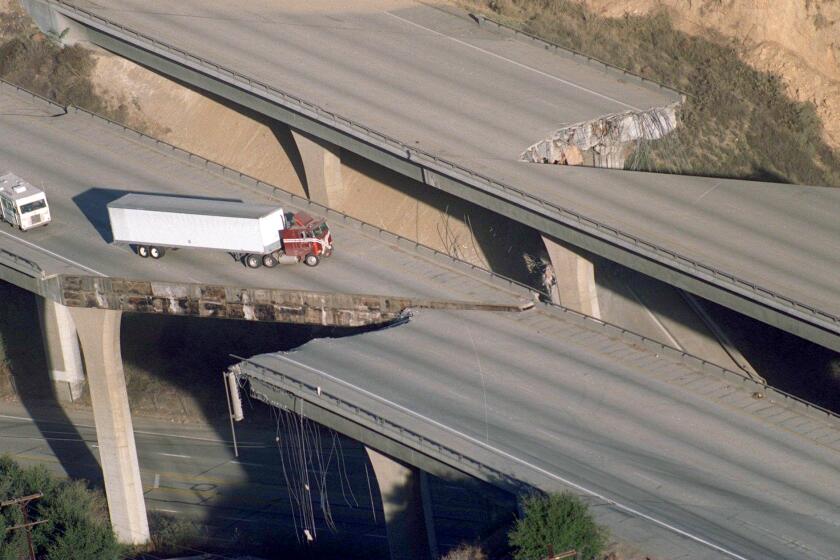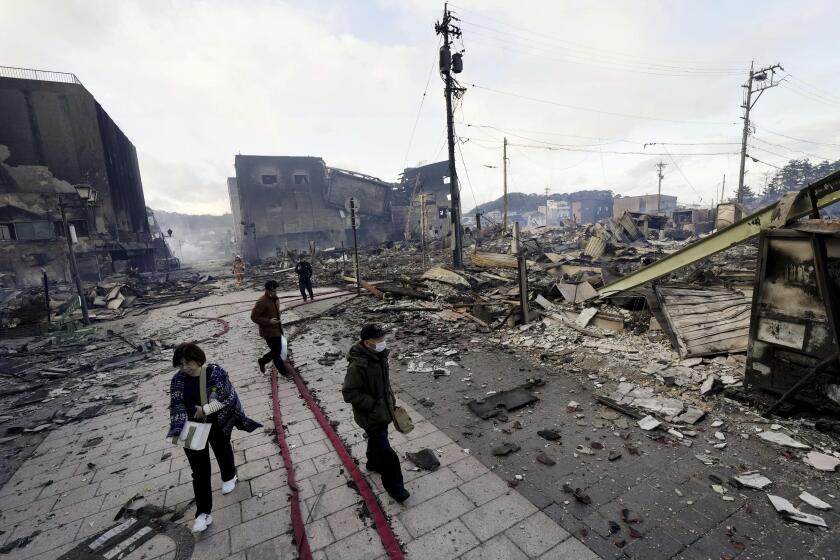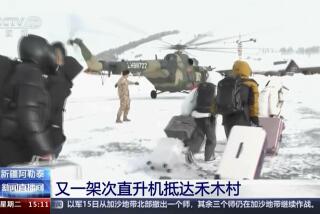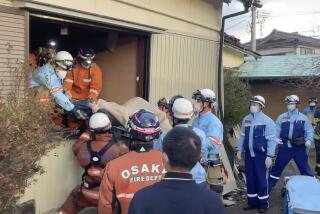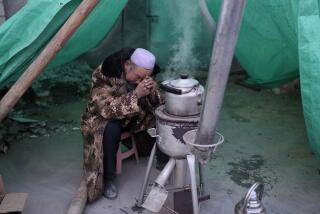Thousands of people forced from their homes after magnitude 7.1 quake in western China
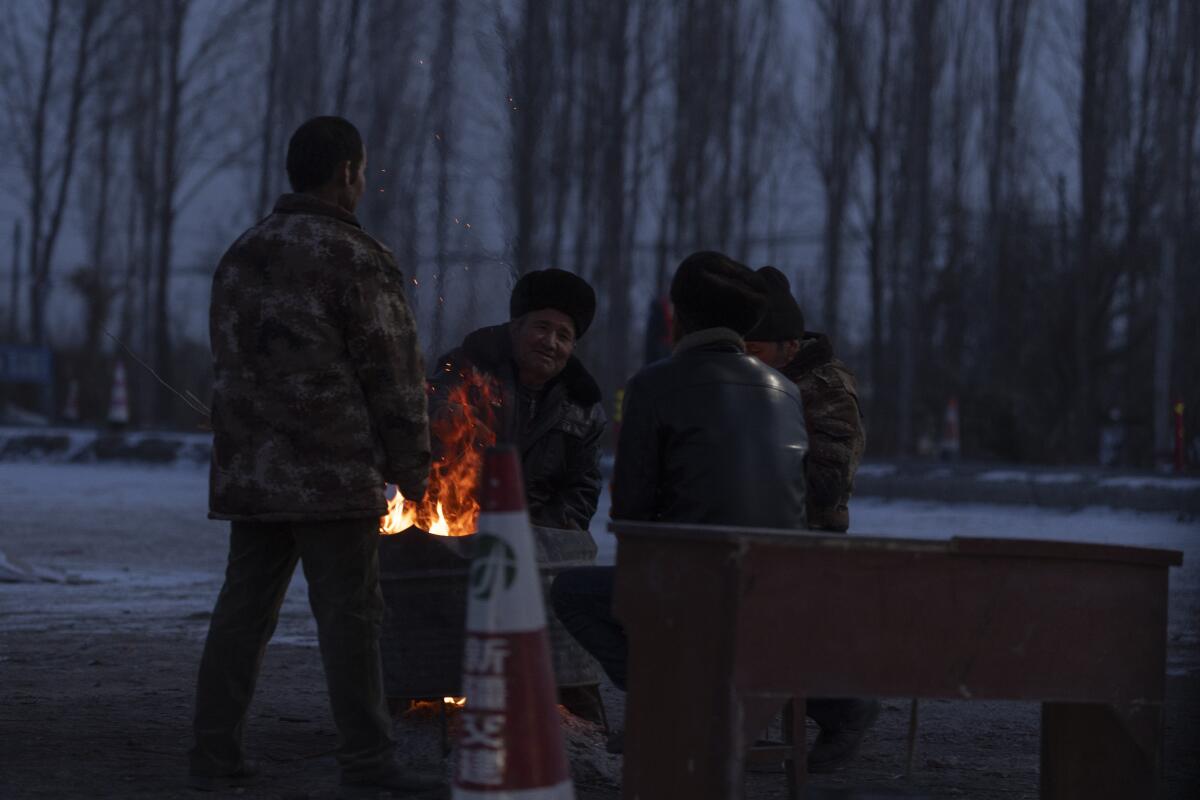
UCHTURPAN, China — As aftershocks continued to rock western China on Wednesday, more than 12,000 people were staying in tents and other shelters and lighting bonfires to fend off the freezing weather.
The previous day, a magnitude 7.1 earthquake in a remote part of China’s Xinjiang region killed three people and left five injured, while damaging hundreds of buildings.
The quake caused significant damage amid freezing temperatures, but the toll on lives and property was relatively light, owing to the sparse population around the epicenter in Uchturpan county, near the border with Kazakhstan.
Footage shown by state broadcaster CCTV on Wednesday showed evacuees eating instant noodles in tents with bonfires providing heat.
Jian Gewa, a 16-year old student in Uchturpan, said he was in the bathroom when the quake began. The entire building shook violently.
“I just thought I had to get myself to safety as quickly as possible,” Jian said.
Our understanding and preparedness have come a long way since Northridge’s magnitude 6.7 earthquake in 1994. We’re still learning from that destructive temblor.
He was evacuated to a school where he was staying in a dorm room with his grandfather, joining about 200 others. Local officials said they planned to check houses’ stability before people could return.
The earthquake hit in a sparsely populated area with clusters of towns and villages scattered across an otherwise barren winter landscape. A two-lane highway runs about 78 miles from the city of Aksu to the area, through frozen brown flatlands on one side and craggy outcroppings on the other. Power lines and an occasional cement factory are virtually the only signs of human presence.
In Kizilsu Kirgiz prefecture, the earthquake caused damage of various degrees to 851 buildings, collapsing 93 structures near the epicenter and killing 910 livestock, according to the prefecture deputy Communist Party secretary Wurouziali Haxihaerbayi.
The area is populated mostly by Kyrgyz and Uyghurs, ethnic Turkic minorities who are predominantly Muslim and have been the target of a Chinese government campaign of forced assimilation and mass detention. The region is heavily militarized, and state broadcaster CCTV showed paramilitary troops moving in before dawn to clear rubble and set up tents for those displaced.
On the 30th anniversary of the Northridge temblor, Lorraine Ali recalls a city living with instability, danger and fear.
Two of the three people who died were members of a Kyrgyz sheep-herding family who had brought their flock up the mountain and spent the night in their rest hut, said Shi Chao, the Communist Party head of Kulansarike township.
Rescuers found the family of three, including a 6-year old girl, and brought them down the mountain, but only the father survived, Shi said.
The township has been replacing the huts with sturdier structures partially subsidized by the government, he said. The third death happened elsewhere in Akqi county.
The prefecture has deployed more than 2,300 rescuers, and Akqi county evacuated 7,338 residents. In total, 12,426 people have been evacuated.
A series of powerful earthquakes has hit western Japan, leaving at least 57 people dead and damaging thousands of buildings, vehicles and boats.
Rescue crews combed through the rubble while emergency survival gear, including coats and tents, arrived to help the thousands of people who fled their homes.
The quake’s epicenter was in a mountainous area about 9,800 feet above sea level, said Zhang Yongjiu, the head of Xinjiang Earthquake Administration.
The quake hit shortly after 2 a.m. Tuesday. CCTV said 1,104 aftershocks, including five above magnitude 5.0, were recorded as of 8 a.m. Wednesday. The largest registered at magnitude 5.7.
The U.S. Geological Survey said the area’s largest quake in the last century was also magnitude 7.1. It occurred in 1978, about 125 miles north of Tuesday’s epicenter.
Breaking News
Get breaking news, investigations, analysis and more signature journalism from the Los Angeles Times in your inbox.
You may occasionally receive promotional content from the Los Angeles Times.
Tremors were felt hundreds of miles away.
Tremors also were felt in neighboring Kyrgyzstan and Kazakhstan and reportedly as far away as New Delhi. Videos posted on the Telegram messaging platform showed people in the Kazakh city of Almaty running out of apartment blocks and standing in the street, some of them wearing shorts in the freezing weather.
More to Read
Sign up for Essential California
The most important California stories and recommendations in your inbox every morning.
You may occasionally receive promotional content from the Los Angeles Times.
